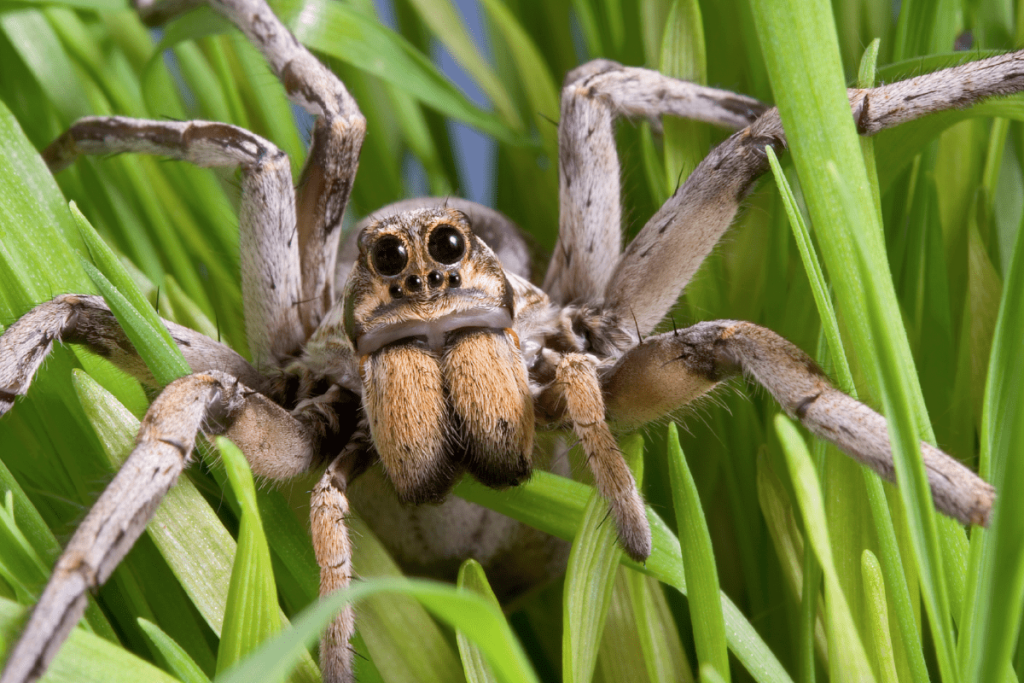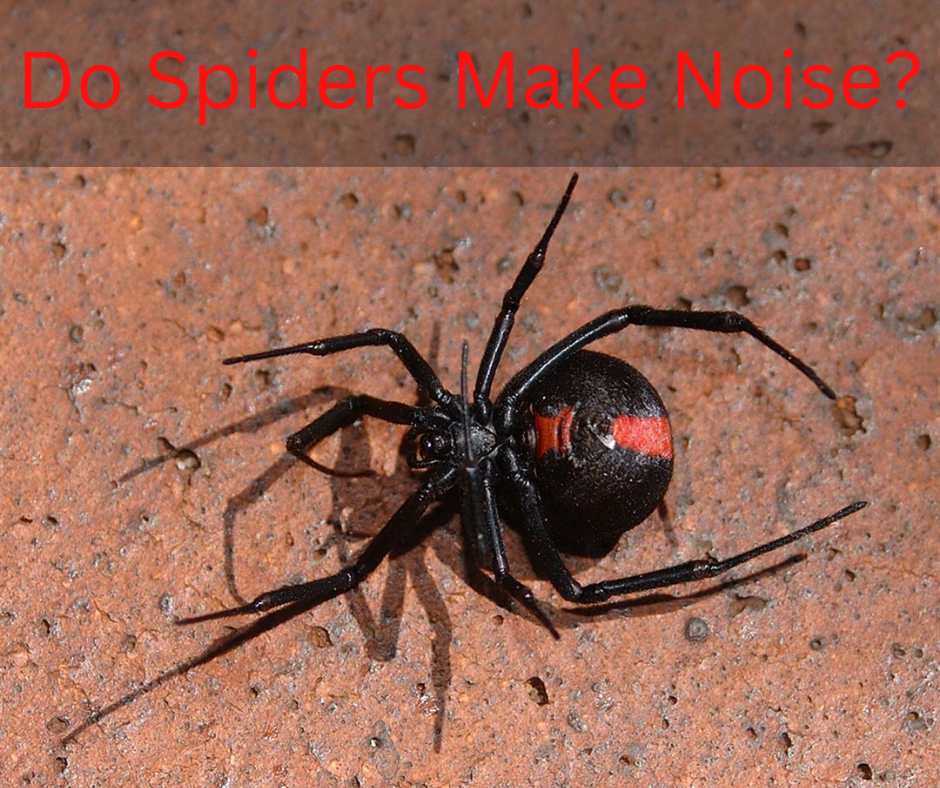Did you know spiders can make noise? Okay, but this noise is not similar to humans or any other animals. This is a way of communication or protection because they do not have any vocal cords.
But the typical spiders found in your house do not make any noise. Generally, wild spiders produce sounds that humans can hear. Especially male wolf spiders make vibrating sounds to attract female spiders.
In this article, I’ll explain- Do Spiders Make Noise and how they communicate through sound. So, if you want to explore the interesting facts about spiders’ noise, then keep reading and expand your knowledge.
Do Spiders Make Noise?
Yes. Spiders can make noise. But most spider species can not make any noise. Only rare species like wolf spiders or tarantulas can make noise you may hear. Large spiders like tarantulas make noise through stridulation.
They rub their body together in this process, typically the chelicerae (mouthparts) or the pedipalps (sensory appendages near the mouth).
So, if you think you have never heard spiders making noise in your home, then you are right because domestic spiders do not create sound.
What Type of Sounds Do Spiders Make?

Though most spiders do not make any audible sound, many spiders, like wolf spiders or tarantulas, can make sounds for various reasons.
Purring sound
Spiders make purring sounds by vibrating their abdomens or other body parts. Male spiders make a purring sound to get the attention of female spiders. Mostly they make the purring sound as a courtship behavior. Female wolf spiders use this sound as an indicator of breeding. On the other hand, male spiders respond to them with a low purring sound.
Stridulation Sound
When some larger animals walk, their body parts rub against each other, which is the cause of the stridulation sound. Larger spider species, like Tarantulas, can make this kind of sound. When they start moving around, you can hear sharp noises. But you can mostly hear the sound of larger tarantulas. You may not be able to hear the sound of small ones.
Hissing sound
When the tarantulas feel threatened, they make a hissing sound. They try to give a message with the hissing sound to the potential predators not to come closer. So, it is like a threat to predators when they feel endangered. They also produce a hissing sound through the stridulation process. They rub their leg and pedipalps, whether in slow or fast movements. This is also a soft warning for predators when they move forward in a defensive mood.
How Do Wolf Spiders Make Sound?
Wolf spiders make noise by vibration. When they pass through the dry leaves, they produce vibration. It makes the sound as a result. So, wolf spiders can make vibrations and sound at the same time. They create vibration by compressing pedipalps and their limbs together. So, when they walk around through the dry leaves, it causes a purring sound.
Why Do Spiders Make These Sounds?
Spiders communicate with sounds. Male spiders make sounds to grab the attention of female spiders. They make vibrations and stridulation in their web. Spiders can produce sound to establish territory, attract mates, or express aggression.
They can produce a specific sound frequency as part of their courtship behavior. Spiders create sound to save their territory from the attack of their competitors.
The purpose of these sounds is to warn them to stay away. Spiders also make a hissing sound to scare away their potential predators.
Can Spiders Make Barking Sound?
Yes. Some spiders can produce sounds that are similar to barking. They can make sounds by rubbing body parts. It helps them to save themselves from potential predators.
Do Tarantulas Make Noise?
Yes. Tarantulas can make noise like the wolf spider. The spiders rub the hairs of their front legs with their pedipalps. The spiders vibrate, which can make hissing or purring sounds. They use the sound as a threat to their predators.
Do Spiders Communicate With Sounds?
Spiders make sounds as a way of communication. Spiders make vibrations, stridulation or drumming as a source of sounds. Male and female spiders use sound as a courtship behavior.
Some species, like jumping spiders, use visual and acoustic signals to grab the attention of female spiders. Spiders communicate with other spiders and scare away their predators with sounds.
Conclusion
The majority of spiders make no noise. But the sounds that spiders make are not audible distinctly. You may be able to hear the sound in complete silence. Domestic spiders are silent in manner.
Only a few species of spiders can use sound to communicate. So, if you are interested in tracking the sound of a spider, you may have to go to the wild.
FAQs
Do spiders make a buzzing sound?
Palpimanus spiders can make buzzing sounds. They make buzzing sounds to alert other spiders. They make a buzzing sound by rubbing their body part and also create vibration. They generally make this sound when they feel disturbed.
Do spiders hiss?
Yes. Some spider species, like tarantulas, make hissing sounds. It works like a defense strategy for them. Male spiders usually use it as a mating behavior.
What noise are spiders scared of?
Spiders are scared of ultrasonic sound as it has a high noise frequency. Spiders and other insects run away from the room if they detect ultrasonic sounds. So, ultrasonic pest repellent can keep away spiders and other insects.
Do spiders scream?
No. Spiders do not scream. Spiders do not have vocal cords to scream. Only humans can scream to see a jumping spider. Spiders produce sound by stridulation only. But when tarantulas make a sound, you may be mistaken by screaming. Actually, It is the hissing sound produced through stridulation as it passes through the air, it may sound like a scream.
Can House spiders make noise?
No. House spiders can not make audible sounds to humans. They may have the ability to make vibrations while moving. But home spiders don’t have vocal cords or any other physical ability to make noise.



